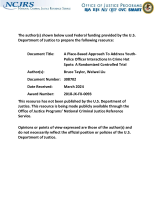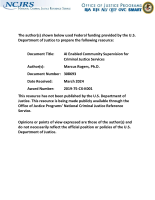Visualization of partial bloody fingerprints on nonporous substrates using columnar thin films
Journal
Canadian Society of Forensic Science Journal
Date Published
2015
Agencies
NIJ-Sponsored
Publication Type
Research (Applied/Empirical)




